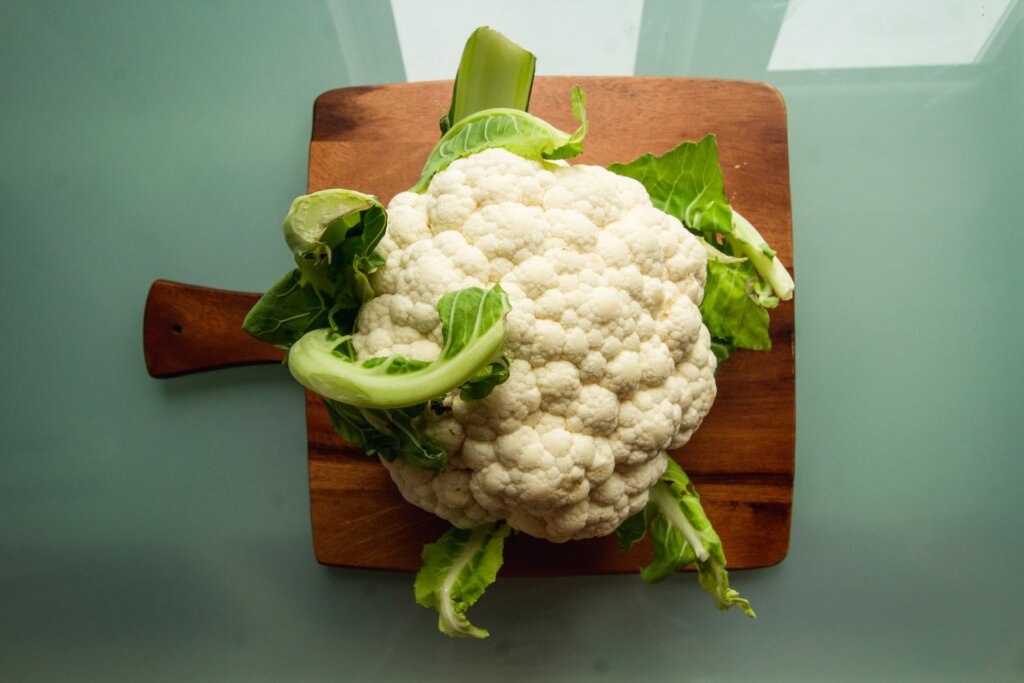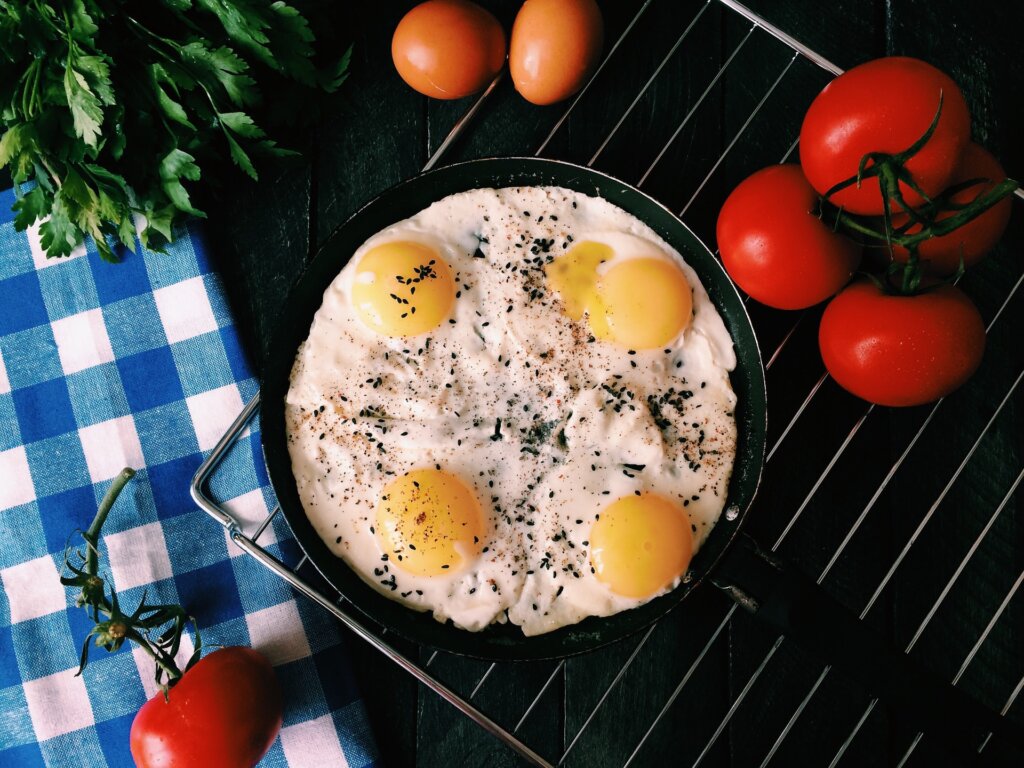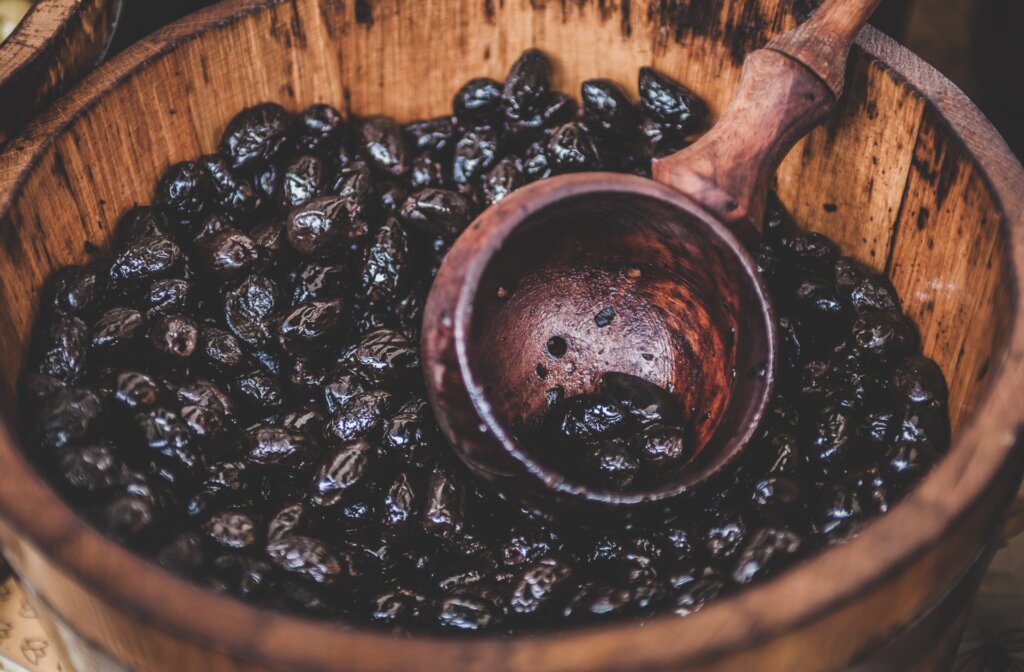The ketogenic diet has become very popular in recent times: studies have shown that this high-fat, low-carb diet is effective not only for weight loss, but also for diabetes and epilepsy. Furthermore, according to some studies that are still in an early stage, this diet could be useful for some types of cancer, Alzheimer's disease, and other diseases.
A ketogenic diet typically limits carbohydrates to 20-50 grams per day. While this may seem challenging, many nutritious foods can easily accommodate this way of eating. That's why in this article we wanted to provide you with a list of food for the ketogenic diet, i.e. with the most suitable foods for this diet.
1. Seafood
Fish and shellfish are very “keto-friendly” foods. Salmon and other fish are high in B vitamins, potassium and selenium, but virtually carbohydrate-free. However, the carbohydrates in different types of shellfish vary. For example, while shrimp and most crabs contain no carbohydrates, other types of shellfish do, and it's important to account for these carbohydrates when you're trying to stay within a narrow range.
Here are the carbohydrate counts per 100 grams of some popular types of shellfish:
- Clams: 4 grams
- Mussels: 4 grams
- Octopus: 4 grams
- Oysters: 3 grams
- ctoggles: 3 grams
Salmon, sardines, mackerel and other oily fish are very high in omega-3 fats, which are great for lowering insulin levels and increasing insulin sensitivity in people who are overweight and obese. Additionally, frequent fish intake has been linked to a decreased risk of disease and improved cognitive health.
2. Low Carb Vegetables
Starch-free vegetables are low in calories and carbohydrates, but high in many nutrients, including vitamin C and several minerals.
Vegetables and other plants contain fiber, which your body doesn't digest and absorb like other carbohydrates. Therefore, look at their digestible (or net) carb count, which is total carbs minus fiber. The term "net carbs" simply refers to carbohydrates that are absorbed by the body.
Many vegetables contain very few net carbohydrates. However, consuming a serving of "starched" vegetables such as potatoes, yams, yams, or beets could cause you to exceed your daily carbohydrate limit. The net carb count for non-starchy vegetables ranges from less than 1 gram per 1 cup of raw spinach to 7 grams per 1 cup of cooked Brussels sprouts.

Greens also contain antioxidants that help protect against free radicals, unstable molecules that can cause damage to cells. Additionally, cruciferous vegetables such as cabbage, broccoli and cauliflower have been linked to decreased risk of cancer and heart disease.
Low-carb vegetables are great substitutes for higher-carb foods.
For example:
- The cauliflower can be used to mimic rice or mashed potatoes
- “Zoodles” can be created with les zuchinis
- The pumpkin spaghetti they are a natural substitute for spaghetti
Here are some examples of keto vegetables to include in your meal plan:
- asparagus
- avocado
- broccoli
- cabbage
- cauliflower
- cucumber
- green beans
- eggplant
- kale
- lettuce
- olives
- peppers (especially green)
- spinach
- tomatoes
- zuchinis
3. Cheese
There are hundreds of types of cheeses, fortunately, most are very low in carbohydrates and high in fat. Simply put, the perfect ketogenic diet food. A 1-ounce serving of cheddar cheese provides 1 gram of carbohydrates, 6.5 grams of protein, and a good amount of calcium.
Cheese is high in saturated fat, but it hasn't been shown to increase the risk of heart disease. In fact, some studies suggest that cheese may actually help protect against heart disease. It also contains conjugated linoleic acid, which is a "good" fat that has been linked to fat loss and improved body composition. Additionally, eating cheese regularly may help reduce the loss of muscle mass and strength that occurs with aging.
A 12-week study of adults found that those who consumed about 200 grams of cottage cheese per day experienced less loss of muscle mass and muscle strength over the course of the study than others.
Here are some cheeses that are lower in carbohydrates, making them the perfect ketogenic diet food:
- gorgonzola
- Brie
- Camembert
- Cheddar
- chevre
- colby jack
- ricotta
- cream cheese
- feta
- goat cheese
- halloumi
- havarti
- limburger
- manchego
- mascarpone cheese
- mozzarella cheese
- muenster
- parmesan
- pepper jack
- Provolone
- Roman
- stretched curd cheese
- hemmental
4. Avocados
Avocados are incredibly healthy: 100 grams, or about half of an average avocado, contains 9 grams of carbohydrates.
However, 7 of those are fiber, so her net carb count is just 2 grams. Additionally, avocados are high in vitamins and minerals, including potassium, a minor whose increased intake can help make the transition to a ketogenic diet easier.
Additionally, avocados may help improve cholesterol and triglyceride levels.
One study found that participants who ate one avocado a day had beneficial effects for their cardio-metabolic risk factors, including lower levels of LDL (bad) cholesterol.
5. Meat and poultry
Meat and poultry are considered staple foods in a ketogenic diet. They contain no carbohydrates and are rich in B vitamins and several important minerals. They're also a great source of high-quality protein, which has been shown to help preserve muscle mass on a very low-carb diet. A study of older women also found that consuming a high-meat diet fat resulted in higher HDL (good) cholesterol levels of 5% compared to a low-fat, high-carbohydrate diet.
It's best to choose grass-fed meat if possible. That's because grass-eating animals produce meat with higher amounts of omega-3 fats, conjugated linoleic acid, and antioxidants than meat from grain-fed animals.
6. Eggs
Eggs are one of the healthiest and most versatile foods on the planet.
One egg contains less than 1 gram of carbohydrates and about 6 grams of protein, making eggs the perfect ketogenic diet food. Additionally, eggs have been shown to trigger hormones that increase feelings of fullness and satiety.

It's important to eat the whole egg, as most of an egg's nutrients are found in the yolk. This includes the antioxidants lutein and zeaxanthin, which help protect eye health. Although egg yolks are high in cholesterol, consuming them does not raise blood cholesterol levels in most people. In fact, eggs appear to change the size of LDL particles in a way that reduces the risk of heart disease.
7. Coconut oil
Coconut oil has unique properties that make it suitable for a ketogenic diet. In fact, it contains medium-chain triglycerides: unlike long-chain fats, MCTs are taken directly from the liver and converted into ketones or used as a quick energy source
In fact, coconut oil has been used to raise ketone levels in people with Alzheimer's disease and other brain and nervous system disorders. The main fatty acid in coconut oil is lauric acid, a slightly longer chain fat. It has been suggested that the coconut oil blend of MCTs and lauric acid can promote a sustained level of ketosis. What's more, coconut oil may help adults with obesity lose weight and belly fat.
In one study, men who ate 2 tablespoons (30 mL) of coconut oil per day lost 1 inch (2.5 cm), on average, from their waistline without making any other dietary changes.
8. Pure Greek yogurt and cottage cheese
Plain Greek yogurt and cottage cheese are healthy, high-protein foods. Even though they contain some carbohydrates, they can still be included in a ketogenic lifestyle in moderation.
One-half cup (105 grams) of plain Greek yogurt provides 4 grams of carbohydrates and 9 grams of protein. This amount of cottage cheese provides 5 grams of carbohydrates and 11 grams of protein. Both yogurt and cottage cheese have been shown to help decrease appetite and promote feelings of fullness. Additionally, both can also be combined with chopped nuts, cinnamon, or other spices for a quick and easy keto treat.
9. Olive oil
Olive oil offers impressive benefits for your heart. It has a high content of oleic acid, a monounsaturated fat that has been found to decrease heart disease risk factors in many studies. Additionally, it is rich in antioxidants known as phenols. These compounds further protect heart health by decreasing inflammation and improving artery function.
As a pure source of fat, olive oil contains no carbohydrates. It's an ideal base for salad dressings and healthy mayonnaise. Because it's not as stable as saturated fat at high temperatures, it's best to use olive oil for low-heat cooking or add it to foods after cooking.
10. Nuts and seeds
Nuts and seeds are healthy, high in fat and low in carbohydrates. Frequent consumption of tree nuts has been linked to a reduced risk of heart disease, some cancers, depression and other chronic diseases. Additionally, nuts and seeds are high in fiber, which can help you feel full and absorb fewer calories overall.
While all nuts and seeds are low in net carbs, the amount varies greatly between different types—any examples?
- almonds: 2 grams net carbs (6 grams total carbs)
- Brazil nuts: 1 gram net carbs (3 grams total carbs)
- cashew nuts: 8 grams net carbs (9 grams total carbs)
- macadamia nuts: 2 grams net carbs (4 grams total carbs)
- pecans: 2 grams net carbs (4 grams total carbs)
- pistachios: 5 grams net carbs (8 grams total carbs)
- nuts: 2 grams net carbs (4 grams total carbs)
- Chia seeds: 1 gram net carbs (12 grams total carbs)
- flax seed: 0 grams net carbs (8 grams total carbs)
- pumpkin seeds: 3 grams net carbs (5 grams total carbs)
- Sesame seeds: 3 grams net carbs (7 grams total carbs)
11. Berries
Most fruits are too high in carbohydrates to be included on a ketogenic diet, but berries are an exception. Berries are low in carbohydrates and high in fiber. In fact, raspberries and blackberries contain as much fiber as they contain digestible carbohydrates.

These small fruits are loaded with antioxidants that have been credited with reducing inflammation and protecting against disease. But how many carbohydrates do they contain per 100 grams?
- blackberries: 11 grams net carbs (16 grams total carbs)
- blueberries: 9 grams net carbs (12 grams total carbs)
- raspberries: 6 grams net carbs (12 grams total carbs)
- strawberries: 7 grams net carbs (9 grams total carbs)
12. Butter and cream
Butter and cream are good fats to include on a ketogenic diet. Each contains only trace amounts of carbohydrates per serving. For many years, butter and cream were believed to cause or contribute to heart disease due to their high saturated fat content. However, several large studies have shown that, for most people, saturated fat is not linked to heart disease.
In fact, some studies suggest that moderate consumption of high-fat dairy products may possibly reduce the risk of heart attack and stroke. Like other full-fat dairy products, butter and cream are high in conjugated linoleic acid, the fatty acid that may promote fat loss.
13. Shirataki noodles
Shirataki noodles are a fantastic addition to a ketogenic diet. You can find them near the produce in grocery stores or online. They contain less than 1 gram of net carbs and 15 calories per serving because they're mostly water. In fact, these noodles are made with a viscous fiber called glucomannan, which can absorb up to 50 times its weight in water.
The viscous fiber forms a gel that slows the movement of food through the digestive tract. This can help decrease hunger and blood sugar spikes, making it beneficial for weight loss and diabetes management. Shirataki noodles come in a variety of shapes, including rice, fettuccine, and linguine. They can be substituted for regular noodles in all kinds of recipes.
14. Olives
Olives provide the same health benefits as olive oil, only in solid form. Oleuropein, the main antioxidant found in olives, has anti-inflammatory properties and can protect cells from damage. Additionally, in vitro studies suggest that consuming olives may help prevent bone loss and decrease blood pressure, although no human studies are yet available.

The carbohydrate content of olives varies according to their size. However, half of their carbohydrates come from fiber, so their digestible carbohydrate content is very low. Ten olives (34 grams) contain 2 grams of total carbohydrates and 1 gram of fiber. This translates to a net carb content of around 1 gram depending on size.
15. Coffee and unsweetened tea
Coffee and tea are healthy, carbohydrate-free drinks. They contain caffeine, which increases metabolism and can help improve physical performance, alertness and mood. Furthermore, coffee and tea drinkers have been shown to have a significantly reduced risk of diabetes. In fact, those with the highest coffee consumption have the lowest risk of developing diabetes. Adding cream to your coffee or tea is fine, but stay away from "light" coffee, i.e. added or pre-packaged coffee, and caffellatte. These are typically made with skim milk and contain high-carb flavors.
16. Dark chocolate and cocoa powder
Dark chocolate and cocoa are delicious sources of antioxidants. In fact, cacao provides at least as much antioxidant activity as any other fruit, including blueberries and acai berries. Dark chocolate contains flavanols, which may help reduce the risk of heart disease by lowering blood pressure and keeping arteries healthy.
Surprisingly, chocolate can be part of a ketogenic diet. However, it's important to choose dark chocolates that contain a minimum of 70% cocoa solids, preferably more, and eat in moderation. One serving (28 grams) of unsweetened chocolate (100% cocoa) contains 3 grams of net carbohydrates, making it a great food for the ketogenic diet.




